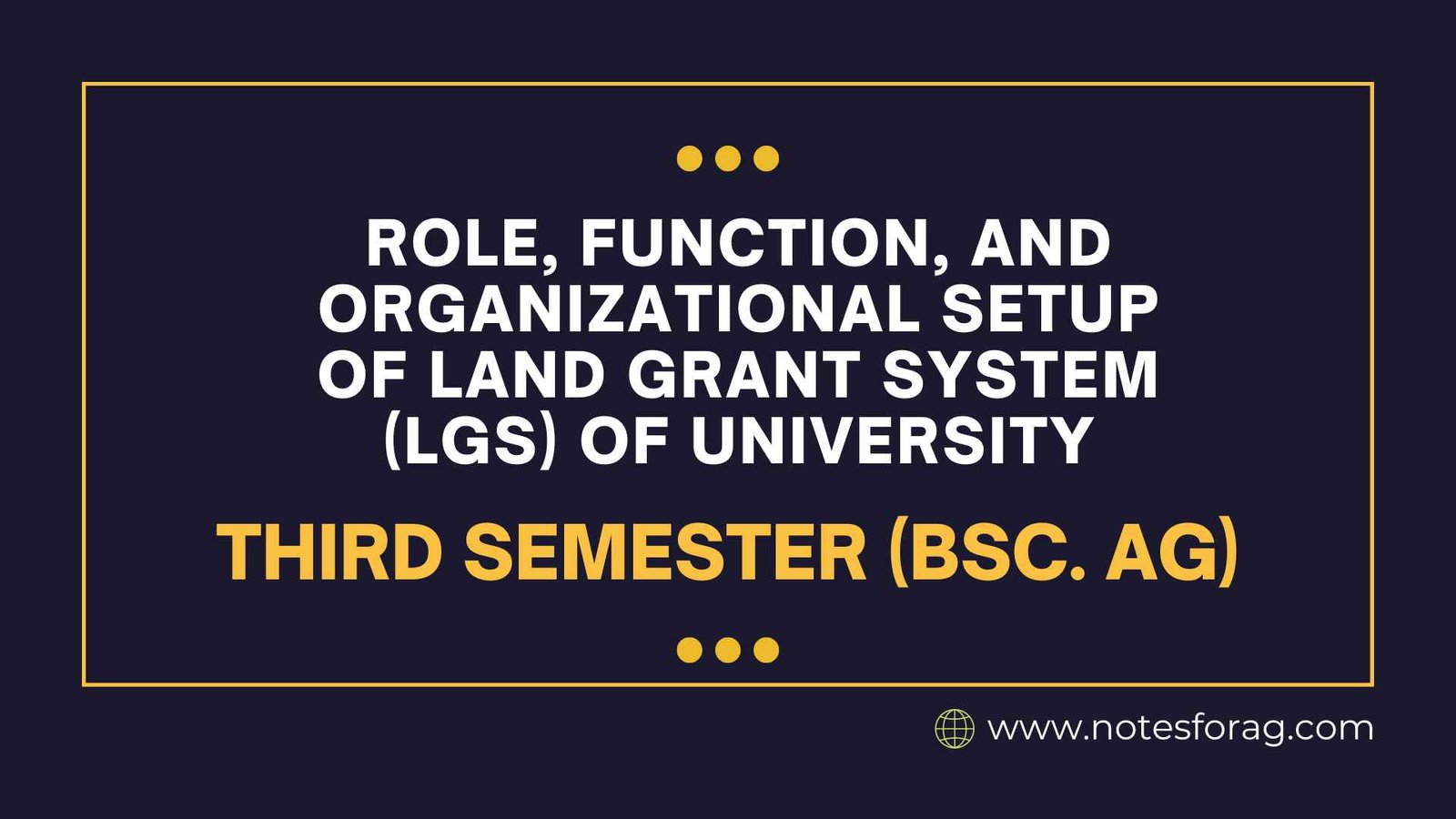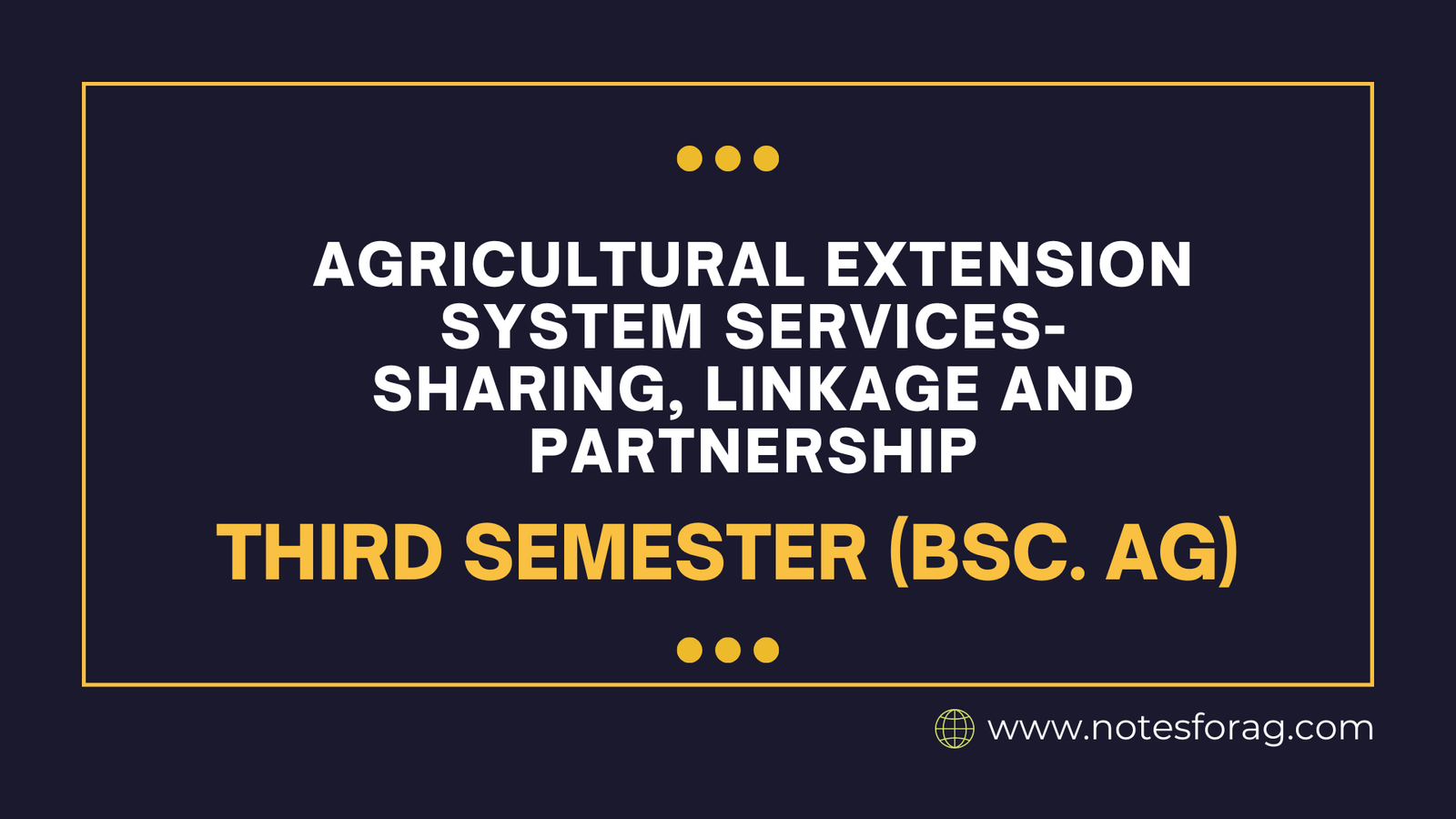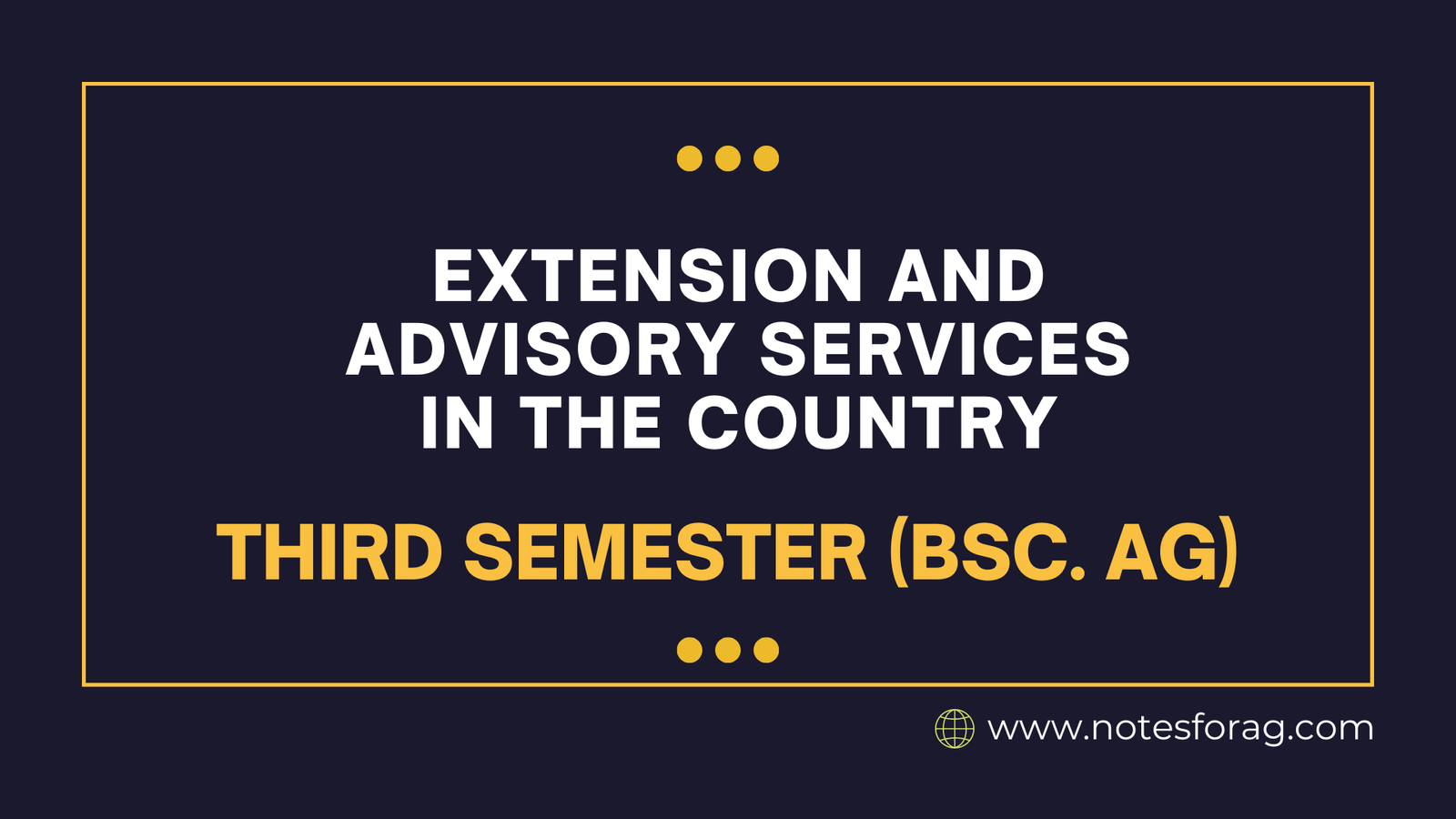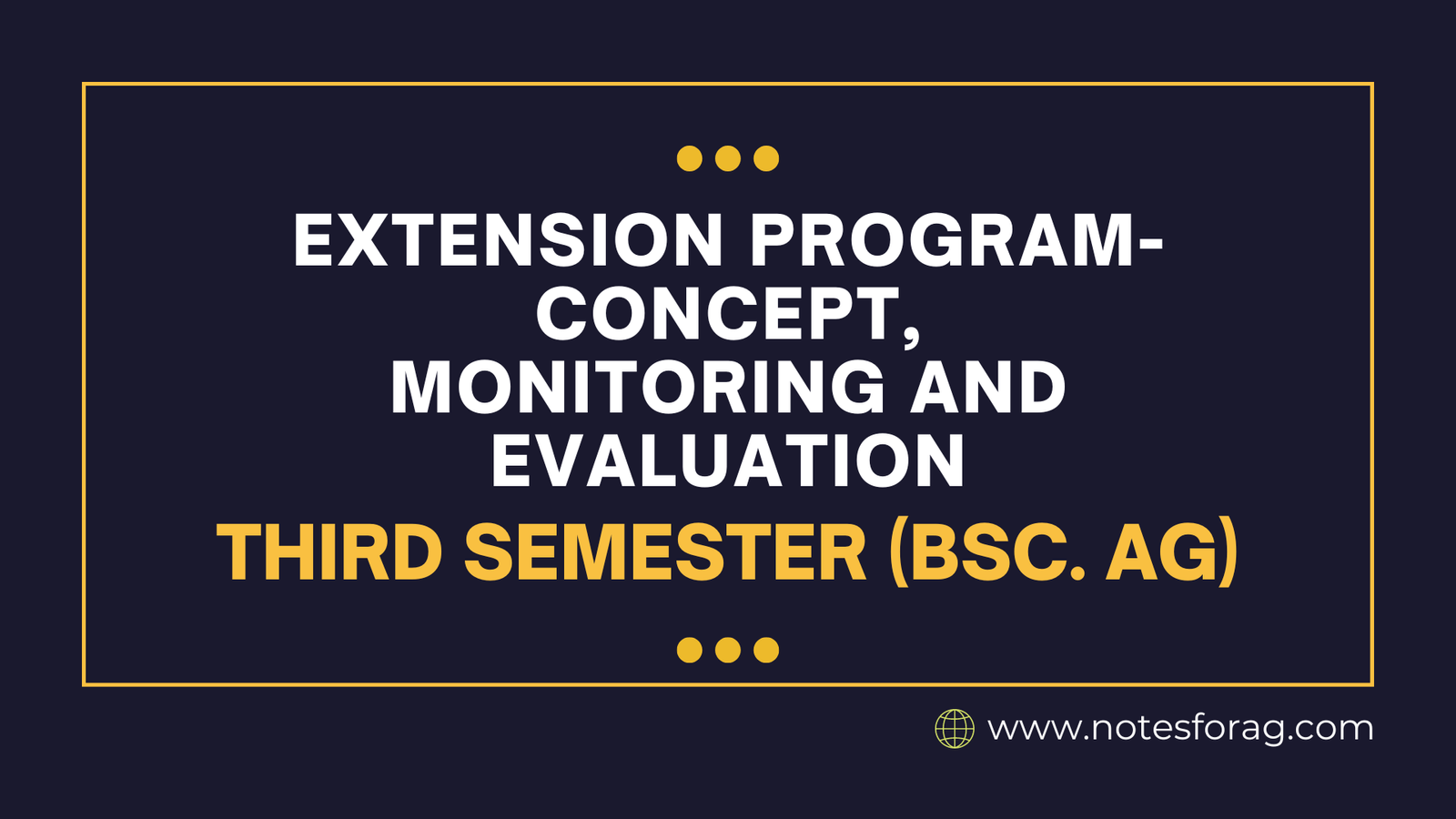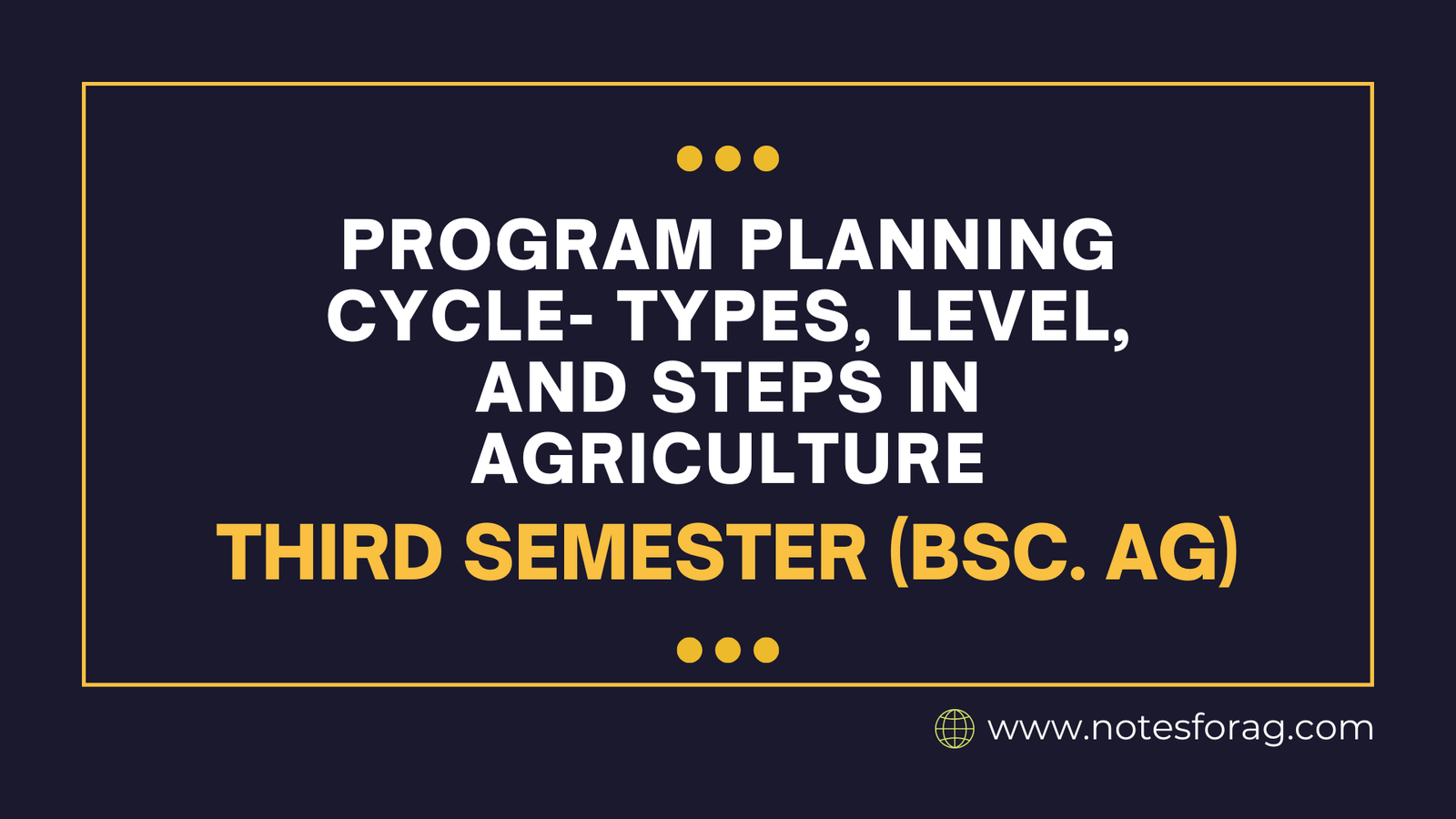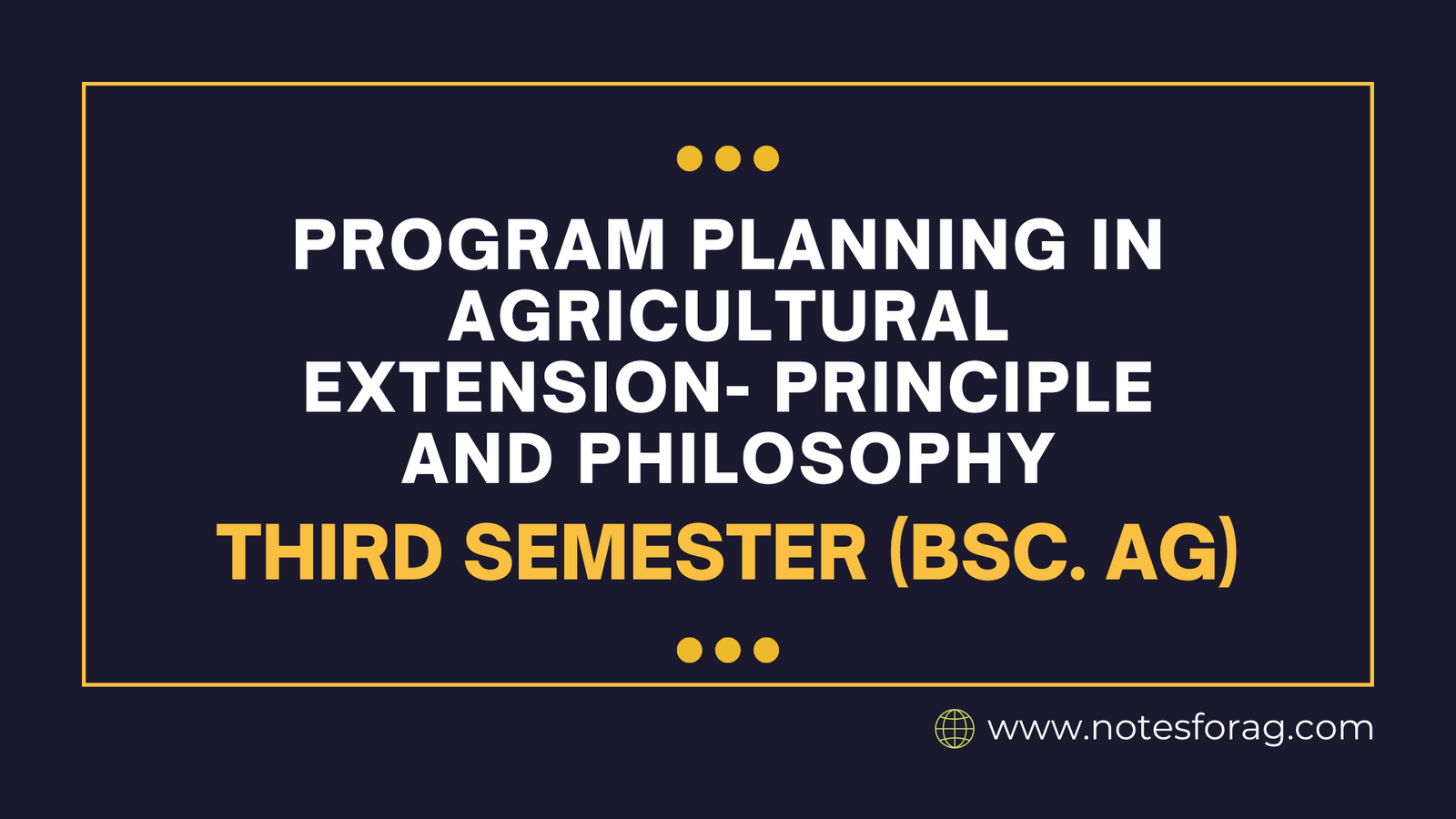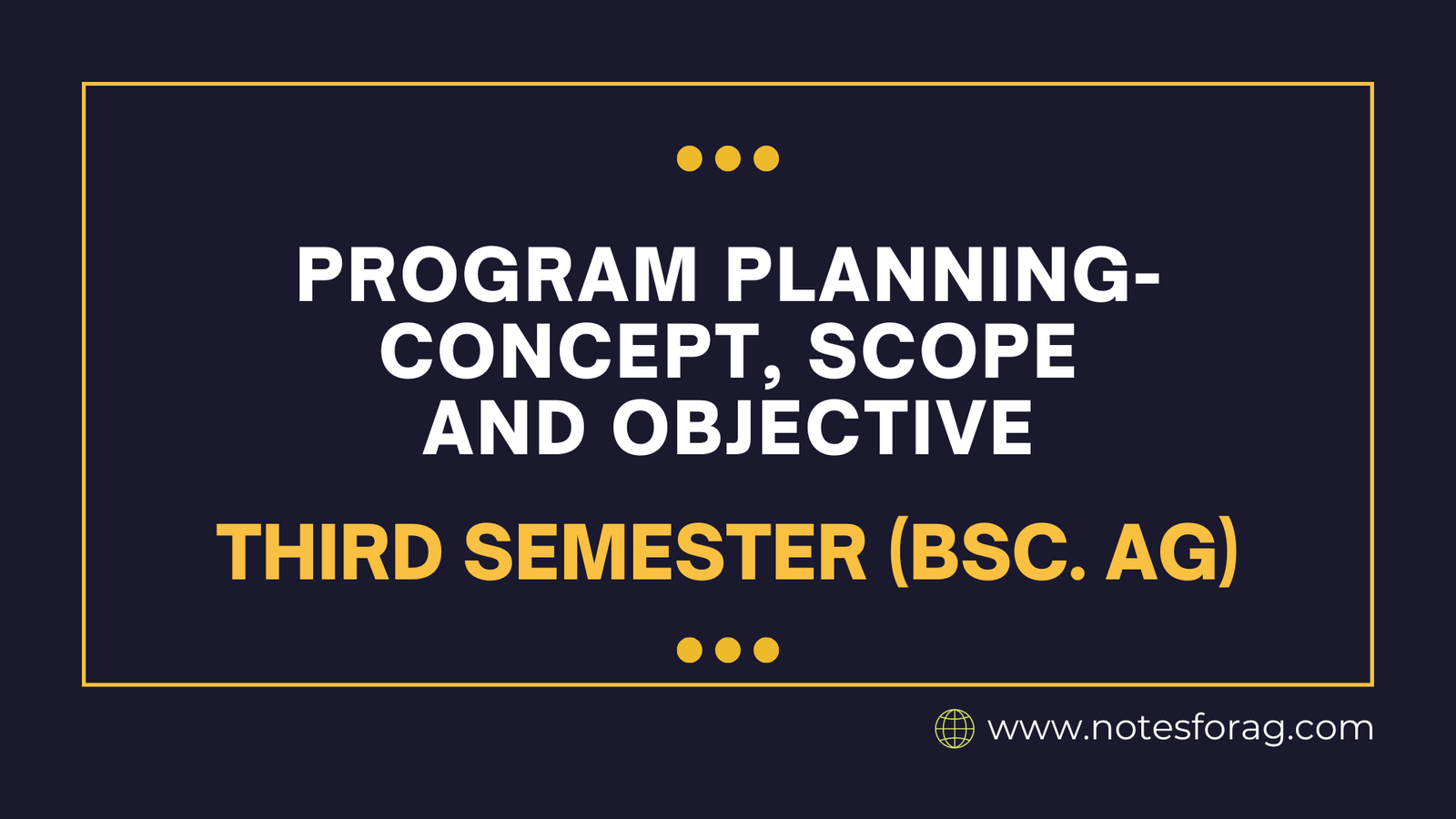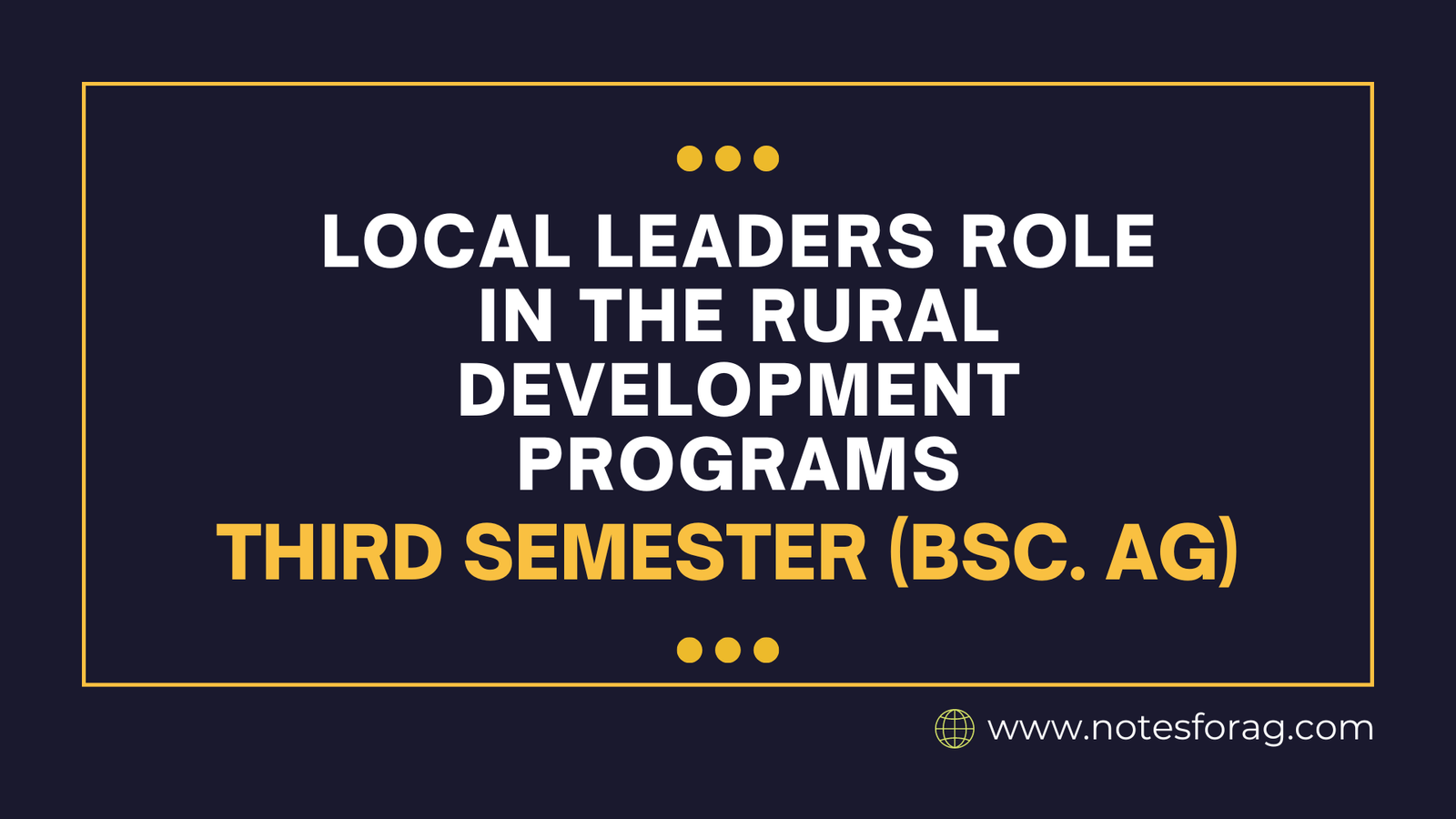Role, function, and organizational setup of Land Grant System (LGS) of University
The Land Grant System (LGS) of universities in the United States is a unique educational model designed to promote higher education, research, and public service, notably in agriculture, science, and engineering. The Morrill Acts of 1862 and 1890 established the system by providing states with federal land to fund the building of universities. These institutions, … Read more

